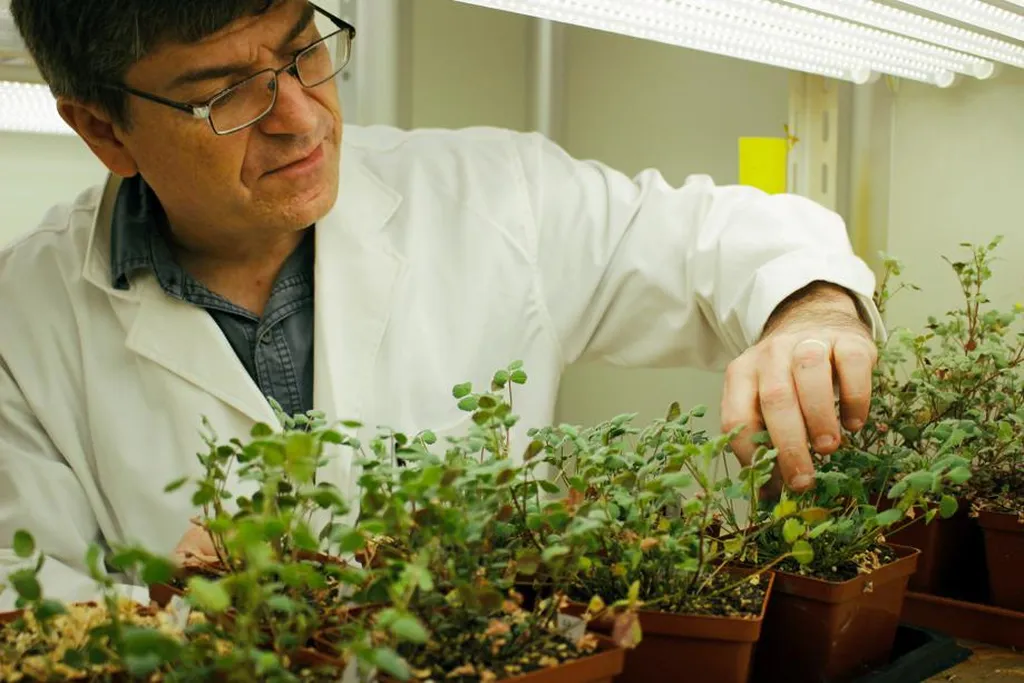In the heart of sustainable agriculture lies a tiny, yet mighty process: symbiotic nitrogen fixation (SNF). This natural phenomenon allows plants like soybeans to convert atmospheric nitrogen into a form that can be utilized by the plant, reducing the need for synthetic fertilizers. Now, a groundbreaking study led by Junchen Leng from the Development Center of Plant Germplasm Resources at Shanghai Normal University has shed light on the critical role of specific transcription factors in this process, potentially revolutionizing the way we approach crop improvement.
The research, published in the journal ‘Plants’ (translated from Chinese as ‘植物’), focuses on the GmMYB transcription factor subfamily 20, with a particular emphasis on two genes: GmMYB62a and GmMYB62b. These genes, the study reveals, are evolutionarily conserved among legumes and play a pivotal role in nodulation—the process by which plants form symbiotic relationships with nitrogen-fixing bacteria.
“Nodulation is a complex process that involves a series of molecular interactions,” explains Leng. “Our study identified that GmMYB62a and GmMYB62b are constitutively expressed in nodules, indicating their involvement in this crucial process.”
The team’s comprehensive analysis involved phylogenetic and structural analyses, expression profiling, and GUS staining. They found that the loss of GmMYB62s function significantly reduced nodule density, while overexpression promoted nodulation. This discovery opens up new avenues for improving symbiotic nitrogen fixation efficiency in legume crops.
Transcriptomic analysis further revealed that GmMYB62s regulate key pathways, including hormone signaling, immune responses, and cell wall metabolism. “These findings provide a deeper understanding of the molecular mechanisms underlying nodulation,” says Leng. “By targeting these transcription factors, we can potentially enhance the efficiency of symbiotic nitrogen fixation, leading to more sustainable and productive agriculture.”
The implications of this research extend beyond the field of plant science. In the energy sector, the development of crops with improved nitrogen fixation capabilities can reduce the reliance on synthetic fertilizers, which are energy-intensive to produce. This not only lowers the carbon footprint of agriculture but also makes farming more sustainable and resilient.
As we grapple with the challenges of climate change and food security, studies like this one offer a glimmer of hope. By unraveling the intricate molecular mechanisms of nodulation, we are one step closer to developing crops that can thrive in a changing world. The work of Junchen Leng and his team is a testament to the power of scientific inquiry and its potential to shape the future of agriculture and beyond.

